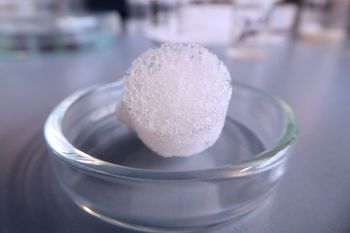The development of novel, resorbable biomaterials has changed the face of regenerative medicine in recent years. Innovative biomaterials have become indispensable in many diagnostic and therapeutic procedures, both in the field of tissue engineering, and in everyday medical practice.
The synthesis of biocompatible and biodegradable polyurethanes and polyureas is one of the research priorities of the Biomaterials department. Polyurethanes show a broad spectrum of properties, ranging from thermoplastic elastomers and porous foams, to rigid polymer networks. By copolymerization, e.g. with carbonates, it is possible to adapt the properties of the polymers (elasticity, melting behavior, degradation rate, etc.) to the material requirements in a targeted manner.
In addition to the development of porous polyurethane scaffolds, a major research focus is the development of polymers that can be processed by extrusion or electrospinning. Electrospinning enables the production of nonwovens, consisting of micro- and nanofibers up to a size of 400 cm2, from these synthesized polyurethanes. Furthermore, this process allows the introduction of different additives (active and bioactive substances, dyes or nanoparticles) into the polyurethane nonwovens. Extrusion allows the homogeneous distribution of up to 40% of fillers (e.g. potassium phosphate, calcium carbonate) in the polymers. Using an extruder (Haake MiniLabII) and an injection moulding machine (Haake MiniJet), filaments can be extruded from the polyurethane polymers or tension and bending test bars can be produced.







